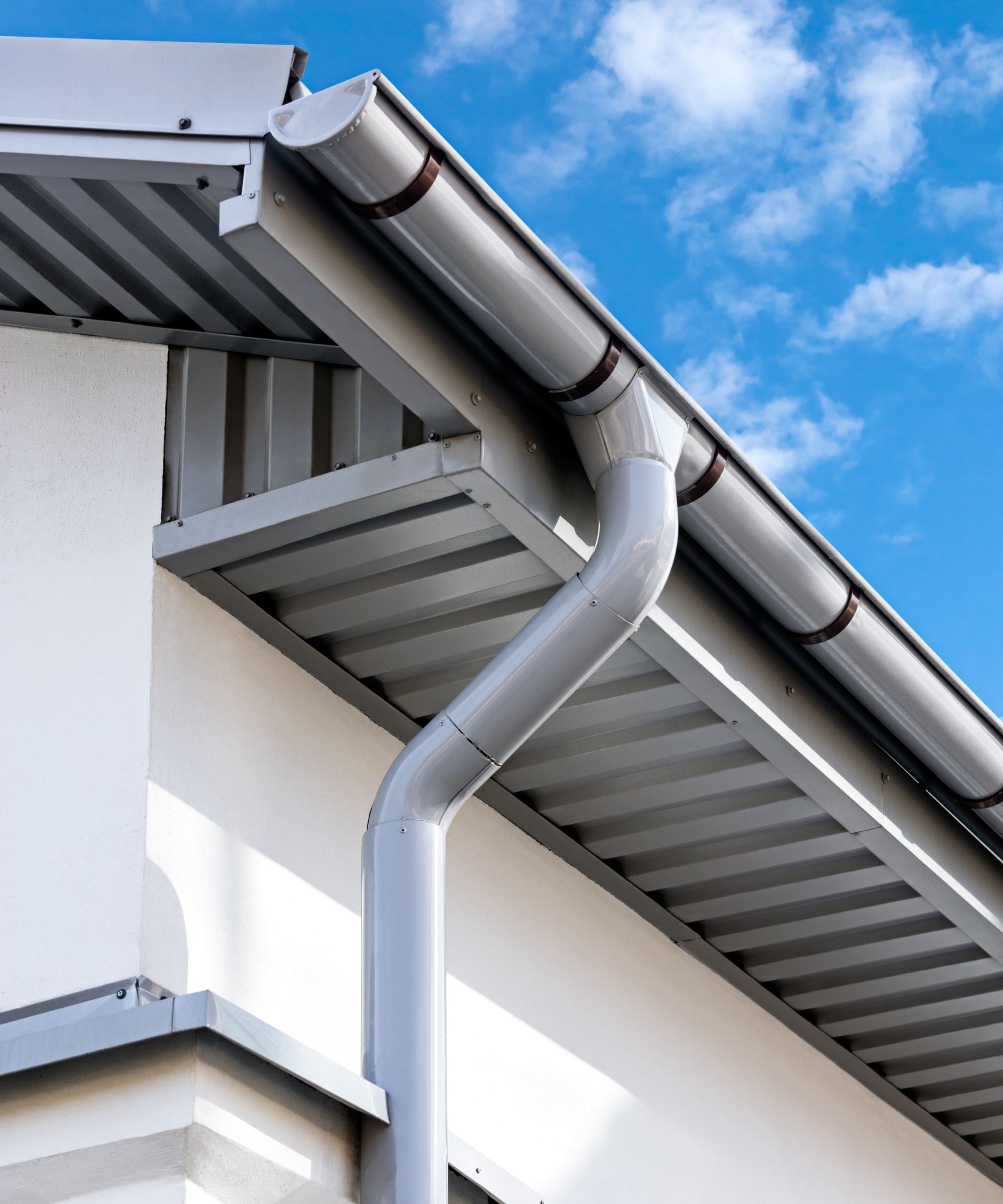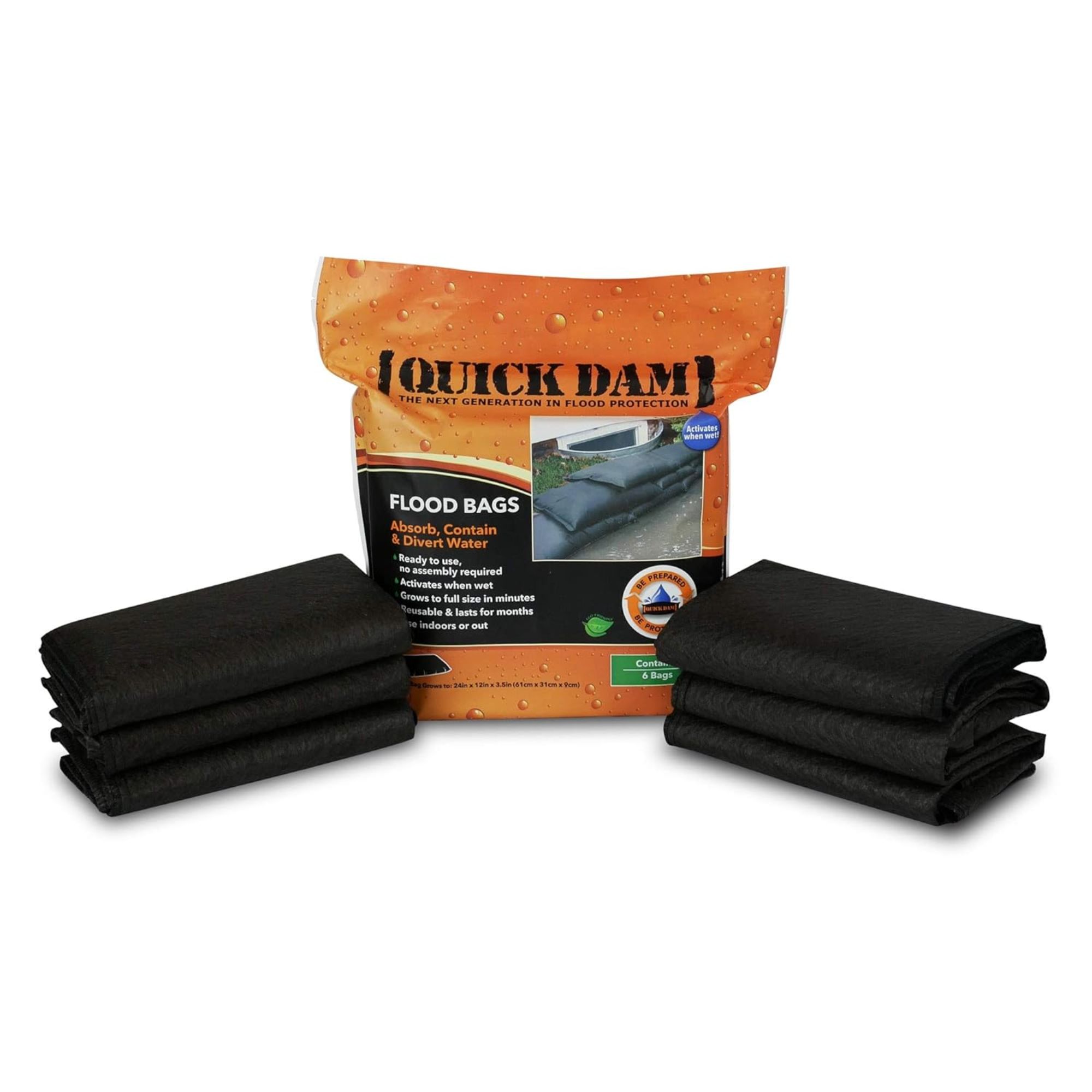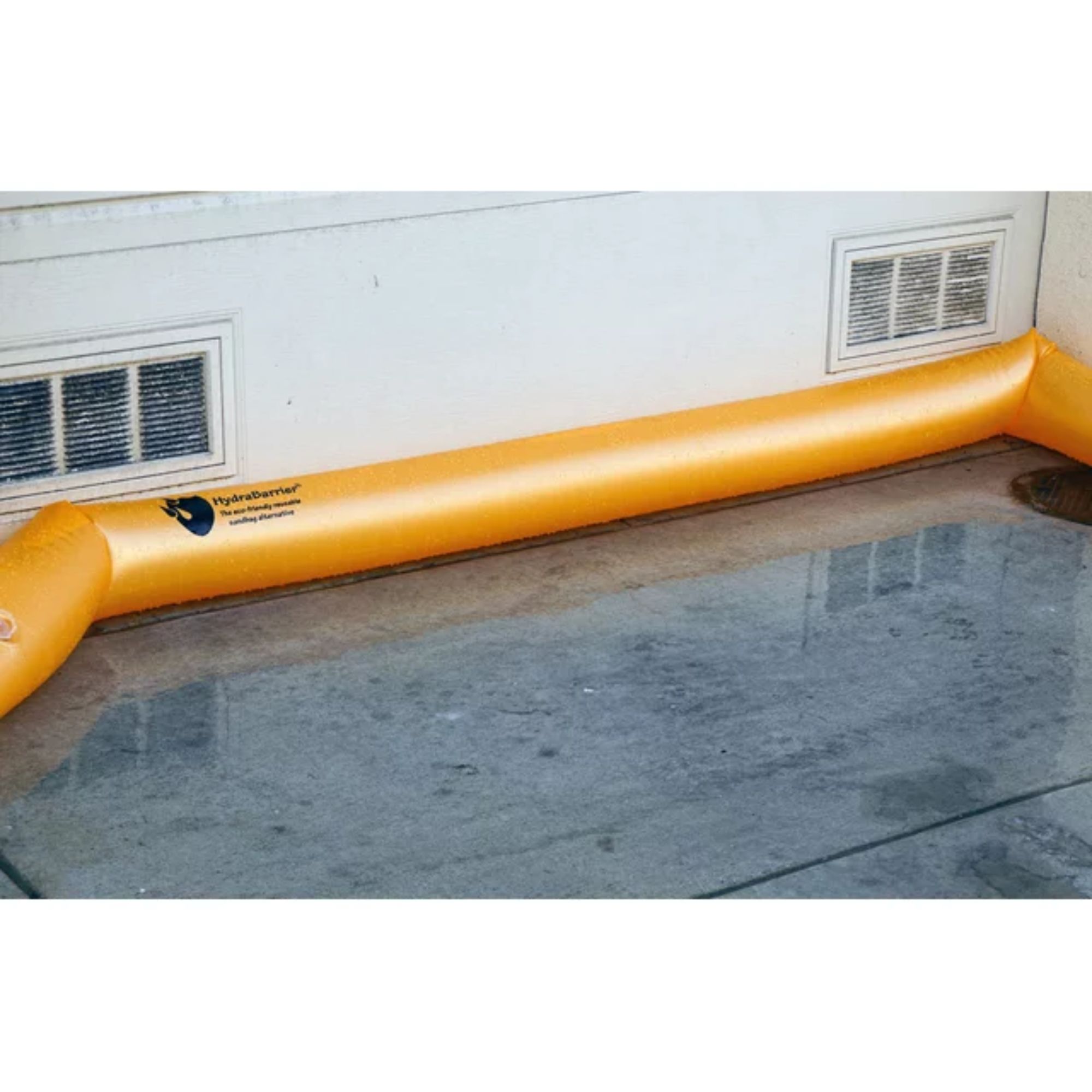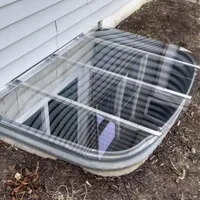Worried about your basement flooding? Install these temporary measures before heavy rainfall
Don't get caught short in a storm – these temporary solutions can protect your basement from flooding


If you live in an area that is prone to flooding, you will want to have a strategy to keep water from entering your basement, even if this is just some temporary fixes to prevent water damage during heavy rain.
While these aren't long-term solutions to waterproof your basement, when you have limited time before heavy rainfall to make adjustments, these temporary flooding prevention methods can make a significant difference in protecting the integrity of your basement and keeping water out of your home.
For those who need extra reinforcements in the face of an impending storm, there are a few effective measures to take to help prevent serious basement flooding before heavy rainfall.
Temporary basement flooding prevention
'Protecting yourself from the natural elements is a necessary part of living in a well-developed property, but sometimes you need to go an extra step further – this could be because you are finalizing an extension, the climate has changed, or you have recently created a new basement.
'In these cases, it’s crucial to protect yourself from flooding. Otherwise, you may find extensive damage not only to your property but also to the integrity of the ground that it’s built on,' warns Sam Beckett, plumbing expert and owner of Beckett's Plumbing and Heating.
'Because of how quickly the weather can change, sometimes a short-term solution for sudden flash floods is necessary.'

Gas safe engineer and expert in plumbing and appliances, Sam Beckett is a seasoned professional in the field of plumbing and heating with a career spanning several years. Under his leadership as the owner and operational director of Beckett's Plumbing and Heating, the company has flourished.
1. Employ sandbags or flood barriers

Using sandbags or temporary flood barriers is a simple but effective method that can create a barrier to divert water away from your basement.
Design expertise in your inbox – from inspiring decorating ideas and beautiful celebrity homes to practical gardening advice and shopping round-ups.
'Position them around vulnerable entry points such as the exterior entryways, windows, and any low-lying areas where water might enter the basement,' advises Sam Beckett. 'Consider stacking the sandbags in layers to account for rising water levels. Additionally, try to keep some spares in the basement that you are trying to protect in the event they are needed.'
2. Seal air vents
'Sealing air vents in foundation walls is important because most standard vents sit at ground level, allowing water easy access into the basement,' explains Matthew Ferris, master plumber and founder of Ferris Plumbing.
'You create a temporary water barrier by covering vents with durable plastic sheeting, secured neatly with duct tape. The airtight seal prevents floodwaters from entering through these vulnerable spots.
'Testing indicates this method can withstand over 20 gallons per minute of water pressure on vents.'
You can use this farm plastic supply sheeting from Amazon.
3. Check and clear gutters and downspouts

'Ensure that your gutters and downspouts are free of debris and effectively direct water away from your home's foundation,' advises Mehdi Khachani, plumbing expert and CEO of JMK Plumbing.
'Before a storm or heavy rainfall we always recommend preemptively cleaning gutters to prevent them from being damaged and water runoff pooling around your basement foundations.'
Utilizing gutter guards, such as this one from Amazon, can ensure debris stays out of gutters while allowing water to flow freely.

Mehdi Khachani, a certified plumbing, air conditioning, and general contractor in Florida, blends hands-on expertise with strategic acumen. Dedicated to excellence, Mehdi delivers innovative solutions tailored to clients' needs, ensuring top-tier quality in construction services. With licenses and a commitment to staying ahead, he continues to positively impact the industry in the vibrant State of Florida.
4. Install window well overs
'If your basement has window wells, consider installing covers to prevent rainwater from collecting in these wells,' recommends Mehdi Khachani. 'This simple measure can significantly reduce the risk of water seeping into your basement through windows.'
Sloped Heavy-Duty Egress Window Well Cover | $498.99 from Amazon.
A window well cover, or a good one at least, is a costly investment. However, protecting this vulnerable space during a flood can save you money in the long term from water damage repairs to your basement.
5. Seal gaps

Inspect your basement for cracks or leaks in the walls, floors, or windows. These small openings can quickly become major entry points for water during heavy rain.
'Replace worn seals or caulking around doors, windows, vents, and utility pass-throughs. Inside your basement, there are penetrations where vents or utility services come through from the exterior,' explains John Kabel, owner and founder of SouthernDry Waterproofing & Foundation Repair Specialist.
'Joints between floors, walls, and windows can also leak. Check all of these locations regularly for signs of basement leaks and make sure that you plug them fully with water-resistant caulking, joint, or sealing materials.
'Ideally, cracks are restored by using a combination of exterior wall waterproofing (to reduce hydrostatic pressure) and wall braces, wall anchors, or carbon fiber straps, but when time is limited, try filling these cracks with water-resistant caulking or epoxy to keep water from pouring in.'
You can try this waterproof silicone caulk sealantor this leakproof seal strip, both from Amazon.
6. Additional measures

After putting these waterproofing strategies in place, there are a couple of additional measures you can put in place to ensure you are on top of your basement maintenance in case of a flood.
Emergency water removal equipment
Mehdi Khachani recommends: 'Have emergency water removal equipment, such as wet/dry vacuums and water pumps, readily available. These tools can be invaluable in quickly extracting water in a flood.'
This Hyper Tough 5-gallon wet/dry vacuum from Walmart would do the job nicely.
Install a water alarm system
'Installing a water alarm system provides vital early warning if flooding occurs. Sensors placed at various low points detect water accumulation and trigger loud 85-decibel sirens within 10 seconds,' explains Matthew Ferris. 'This rapid alert gives homeowners extra time to enact damage control measures or safely evacuate if needed. These alarm systems can detect leaked water amounts as little as 1/16th of an inch. The alarm will continue sounding until the water is cleared from the monitored area.'
Stay informed about upcoming weather conditions. By monitoring weather forecasts, you can anticipate heavy rain and take preventive measures ahead of time.
Move items out of your basement
'In the event of a flood, elevate valuable items and electronic equipment off the floor. Use shelves or other raised surfaces to protect these items from potential water damage,' suggests Mehdi Khachani.
Move any furniture or items to higher ground or outside of the basement if possible to prevent your belongings from getting damaged in case of a flood.
Finally, if you have installed basement drainage solutions, such as a sump pump, double-check to see that it is in good working order. You should also try to get a secondary power source in case of a power outage during the flood.

Lola Houlton is a news writer for Homes & Gardens. She has been writing content for Future PLC for the past six years, in particular Homes & Gardens, Real Homes and GardeningEtc. She writes on a broad range of subjects, including practical household advice, recipe articles, and product reviews, working closely with experts in their fields to cover everything from heating to home organization through to house plants. Lola is a graduate, who completed her degree in Psychology at the University of Sussex. She has also spent some time working at the BBC.



